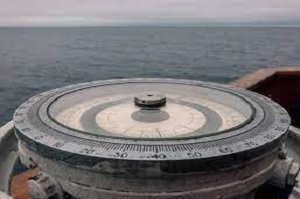Navigating the Seas: Gyro Compass vs Magnetic Compass – Choosing the Best for Accurate Navigation
In the realm of maritime navigation, selecting the right compass is crucial for a ship’s journey. This guide compares two commonly used compasses: the Gyro Compass and the Magnetic Compass, shedding light on their disparities and functionalities.
Gyro Compass: Precision Unleashed
A Gyro Compass operates on a fast-spinning gyroscope, maintaining a fixed orientation in space. Leveraging the Earth’s rotation and gravity, it autonomously identifies the true north pole. Its standout features include unparalleled accuracy and immunity to magnetic interference. Despite being more complex and power-consuming, the Gyro Compass measures pitch, roll, and heading in three dimensions, providing comprehensive ship attitude information.


Magnetic Compass – Simplicity Meets Reliability
Conversely, a Magnetic Compass utilizes a magnetized needle aligning with Earth’s magnetic field. While simple, cheap, and reliable, it is susceptible to external magnetic fields, potentially causing inaccuracies. Limited to two dimensions, a Magnetic Compass cannot measure a ship’s pitch or roll. Despite these limitations, it serves as a dependable backup in case of power failure or Gyro Compass malfunction.
Read More on Different type of Navigation equipment
Advantages of Gyro Compass over Magnetic Compass:
- True North Precision: Gyro Compass finds true north, a more valuable navigation reference than magnetic north.
- Immunity to Magnetic Fields: Unaffected by ferromagnetic materials or external magnetic interference.
- Three-Dimensional Operation: Provides detailed information about the ship’s pitch, roll, and heading.
Disadvantages of Gyro Compass:
- Power Consumption: Requires electricity and periodic mechanical maintenance.
- Drift Error: Necessitates regular correction to maintain accuracy.
- Settling Time: Takes time to align after activation or movement.
In conclusion, both compass types coexist on ships, offering a synergistic approach to navigation. While the Magnetic Compass serves as a reliable backup, the Gyro Compass stands out for its precision and stability. The choice depends on the specific needs and priorities of the maritime journey, ensuring a balanced and secure navigation experience.

